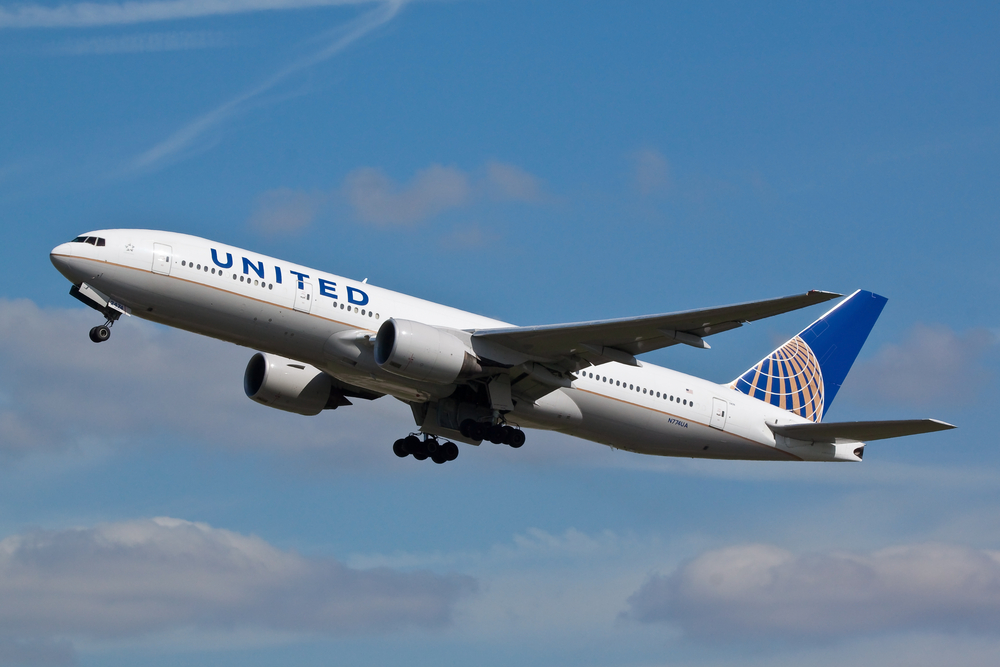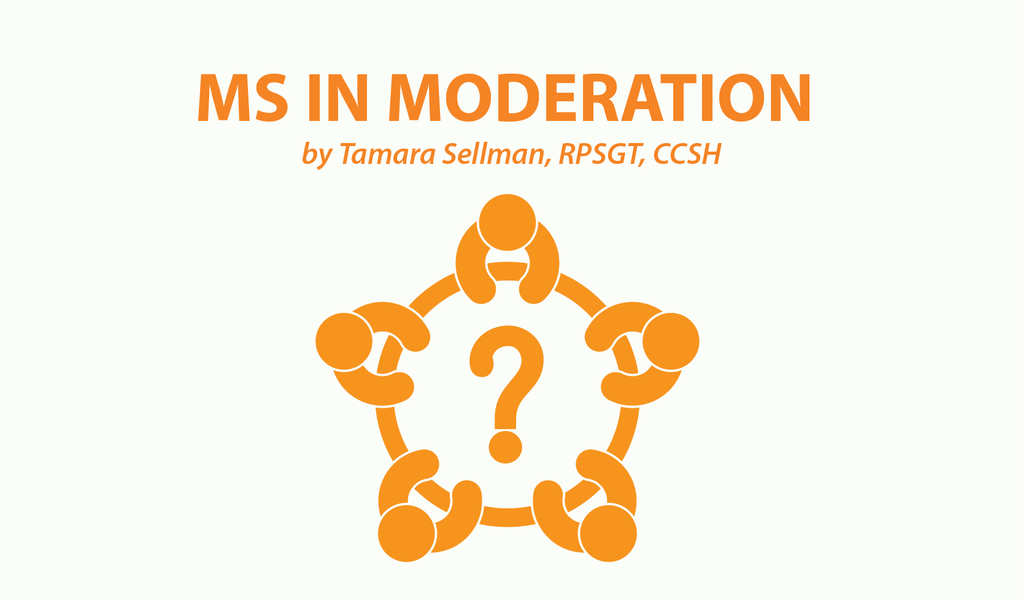United Airlines Dress Code is Wrong, Especially for MS Patients
Written by |

 It appears my favorite way to fly — wearing leggings or yoga pants — isn’t sanctioned by United Airlines. Fortunately, I’m not one of their employees, and I am not related to one who might be able to share free travel passes with me.
It appears my favorite way to fly — wearing leggings or yoga pants — isn’t sanctioned by United Airlines. Fortunately, I’m not one of their employees, and I am not related to one who might be able to share free travel passes with me.
How sad. Normally that would be a stroke of luck for some MS patients. Even if I can afford my flights (or they’re paid for by someone else), many people with MS live on limited incomes and can’t.
The bottom line: This “carriage” rule unveiled over the weekend could prevent people with chronic illness or disability from taking advantage of breaks in airfare in order to travel like everybody else.
So, what happened, exactly?
Last weekend, United’s flight staff refused seats to two 10-year-old girls at the gate because they wore leggings. The airlines staff demanded they “cover up” with dresses before boarding.
The company imposes a dress code for travelers flying on free passes. Because the girls were relatives of UA employees, they were held to a rather vague corporate “dress code for pass travelers as they are representing UA when they fly.” (This, from a corporate spokesperson).
Their dress code policy (Rule 21, section H, number 5) denies boarding to “Passengers who are barefoot or not properly clothed.” No mention of leggings or sports attire there. (You can read more about the incident here.)
United, you messed up
The whole fiasco took place in front of all the passengers. They couldn’t have known of any policy violation. Privacy was clearly disrespected, the mother and her two children humiliated. Meanwhile, the online magazine Heavy quotes witness Shannon Watts observing how passengers began to “panic” over the incident. “These were not private conversations, they were happening in front of everyone. (Passengers) looked frantic as the flight was boarding … I’d like (United) to understand that leggings are part of a woman’s attire in modern-day America,” Watts said.
Allow me to add: They also are a part of a disabled person’s business attire in modern-day America.
Why people with MS ‘dress down’ to travel
It’s a matter of practicality:
- In order to catch a plane, I also need to ride in a car, on a ferry, via the light rail, with significant uphill walking involved. Wearing a dress is completely impractical.
- In addition to having MS, I have rheumatoid arthritis in my feet. My footwear is limited. This decides what I wear. Others with MS-related foot and leg concerns share the same conundrum.
- I live in Seattle and often travel to places that are either much warmer or much colder. We live in layers here. I do so on flights so that I can endure all climates. Active wear does the job.
- Constructed pants and jeans restrict and cut off circulation. Planes, meanwhile, are built to cram more people into less space. A 5-foot-4 woman suffers just as many problems with leg room as a 6-foot-4 man. I need unrestrictive clothing if I hope to walk off the plane at all.
- MS causes significant issues with overheating, compounded by the pressure, humidity and temperature changes of flying. The fabric in yoga pants wicks excessive moisture away and hides my profuse (and embarrassing) sweating.
- My hands shake and hurt. The last thing I need is buckles or buttons in the closet bathroom while tending to personal needs.
United’s policy affects people with chronic illness or disability
It’s tough enough that someone like me already has physical reactions to air travel (tremors, weakness, fatigue, excessive sweating, cog fog). When we ask for special accommodations when we “don’t look sick,” we endure the jeers and judgments of both passengers and flight attendants who assume out loud that we’re lying.
If I needed to rely on the free passes of employed UA relatives in order to fly, I’d probably stop flying altogether. The challenges of air travel with MS are real, as is the price we pay later. We are always one decision away from becoming shut in.
My trips, however, are part of my profession, a lifeline to people, ideas, events, and experiences that give me reason for living. So, I’ll continue to take my flights as long as I can. I’ll just be disinclined to choose United.
***
Note: Multiple Sclerosis News Today is strictly a news and information website about the disease. It does not provide medical advice, diagnosis, or treatment. This content is not intended to be a substitute for professional medical advice, diagnosis, or treatment. Always seek the advice of your physician or other qualified health provider with any questions you may have regarding a medical condition. Never disregard professional medical advice or delay in seeking it because of something you have read on this website. The opinions expressed in this column are not those of Multiple Sclerosis News Today, or its parent company, Bionews Services, and are intended to spark discussion about issues pertaining to multiple sclerosis.



Mark Thoms
You do realize that this policy is only an employee/buddy pass riders policy. It does not apply to the general flying public.
In addition the policy is published in multiple places in the company intranet for employees to reference. There have been multiple communications sent to employees about the policy.
The people in question were either relatives or friends of an employee flying on special privilege buddy passes. As such they had agreed to be bound by the policy. THEY CHOSE TO IGNORE THE INTERNAL POLICY!! In the gate area there is little room for privacy to advise/remind an EMPLOYEE or EMPLOYEE RELATIVE or EMPLOYEE FRIEND that THEY have chosen to ignore the internal policy and have a choice to either comply with the internal policy or be denied boarding.
I am an employee and don't represent the company but from my own experience I share the written policy with any family or friends asking me for the favor of a buddy pass, BECAUSE IT'S THE POLICY!
This has absolutely no impact on the general flying public.
Tamara Sellman
Mark, you did read the post, didn't you? I made it clear that I know all of these things. Please go back and read the post. Thank you.
Someone that knows the rules
The event has nothing to do with MS patients. Employees and their "buddies" have to follow a very loose dress code. Or they can pay full price and wear whatever they want. Find something else to pity us with.
Tamara Sellman
Mark,
You clearly didn't read the post. You also fail in your ability to have compassion for others. Either you're a troll or you're a fitting representative of United Airlines... after judging by this week's latest fiasco, it could go either way. The only person I pity here is you. Karma will take care of it. Be well.
Paula Hardin
Thank you so much!! This is exactly how I feel. They were criminally wrong in my opinion to shame two little girls like that. It reminds me of the politician that wanted to ban yoga pants on WOMEN in public.
When we people stop feeling entitled to command what women and girls wear acorrding to some no win situation. If the little girls had dresses and their legs uncovered and a breeze kicks up, how is that "better" and what perv thinks 10 year old girls in leggings is not acceptable in the first place?
I will never fly on United again! These same corporations used to require stewardesses to wear high heels and short tight skirts AND flirt with businessmen. They refused to hire married women. They had weight maximums equivalent to anorexia victims.
Airlines made money off the legs of their stewardesses for decades, advertising them as though they were for sale not just there for your safety.
They still practice wage discrimination and have very few women as pilots or copilots. Unacceptable behavior was not by the girls or their mother but by the airline MANagement.
They should get free flights anywhere anytime on ANY airline paid for first class by United at the very least.
Tamara Sellman
This was/is an airline management problem.
I scoured the "policy" and it's not only vague about said "dress code" but it's also vague for people who are chronically ill but ambulatory. You have to go to great lengths to secure any assistance from them well in advance of your flight unless you are in a wheelchair.
I have RRMS, my symptoms come and go as they please. I don't know when my tremors will become problematic. It's already so much for a person with chronic illness just to get through the flying process, this "policy" just adds more barriers and frustration.
Granted, I'll never be a buddy pass holder, but for those people with MS or other disabling illness who are, who may only be able to fly because of the charity of their UA-employed loved ones, this is yet another major obstacle and a reason to become shut in.
Liz Ballard
My question is how do the public know a person is using a buddy pass and flying...if there is no way for them to know . .what should it matter about what a passenger wears?
Tamara Sellman
That's a good question, Liz. There's no way to know the difference between a buddy pass carrier and an ordinary passenger. This explains the confusion and panic among passengers when they overheard the conflict... which they should not have overheard, because if buddy pass carriers are supposed to be a private matter, so too should their problems. Instead, the flight staff embarrassed those buddy pass carriers in front of a bunch of concerned passengers.
It doesn't matter what a non-buddy carrier passenger wears, the rule is for employees and buddy pass carriers, to "represent" the airlines (though who knows they are buddy pass carriers? clearly nobody!) though the rule is vague and left up to the flight staff. Which means it's a crapshoot for anyone with a buddy pass... maybe you'll get on the flight, maybe you won't?
Again, my point is this: if that buddy pass carrier has MS (or another chronic illness) and cannot live up to UA's vague "standards" because they are wearing clothes for reasons tied to their illness, then they risk being humiliated in front of an entire plane full of passengers (especially if they have an invisible condition). I checked the "policy" for what constitutes a passenger with special needs and it completely skims over those who can walk but who may still need assistance. You won't be given much help unless you are in a wheelchair.
I can vouch for this personally; I get extreme tremors in my hands which are painful, and when I went to place my carry-on in the overhead bin on a UA flight last year, I couldn't. It was painful and I couldn't get a proper grip. I was in first class, mind you. I asked the flight attendant standing 3 feet away, who was doing NOTHING, for some help, and she shook her head no, told me shouldn't risk a back injury! (But I guess I can.)